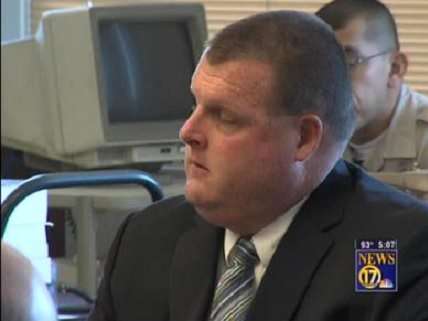Light Sentence for Deputy Sheriff Who Killed Two Pedestrians While Speeding May Be Normal for Such Cases But Shouldn't Mean He Keeps His Job


In December 2011 Kern County sheriff's deputy John Swearengin hit two pedestrians, killing them, while going 80 miles an hour without his lights or sirens. In February he rejected a plea deal that would've seen him serve two years in prison. Last week he pleaded no contest to misdemeanor vehicular manslaughter and was sentenced to probation and 480 hours of community service. The accident cost the county $8.8 million in settlements to the victim's families.
At the Bakersfield Californian, columnist Lois Henry writes that while her first instinct was that Swearengin's punishment was an example of "good ol' boy justice," she found that in Kern County such cases of vehicular manslaughter, that don't include intoxication or illegal activities like texting or drag racing (I guess speeding doesn't count?), the punishments are light. Taken from the perspective that the law should most punish those who intend harm and not those who make "dumb mistakes" the pattern of sentencing doesn't seem to be a controversy. The fact that Swearengin still has a job where he's entrusted with a weapon and the authority to use violence when he's shown himself to be fatally careless, however, is.
California "public servants" have had some of the longest-standing protections of public employees anywhere in the country. The 1913 Civil Service Act created legal protections for government employees long before the privilege of collective bargaining became almost ubiquitous. The law provides for a long list of offenses that can result in termination (incompetence and inexcusable neglect of duty seem relevant here), but it also provides an extensive process of appeals for employees accused of firable offenses. The law has the effect of deincentivizing managers from trying to terminate employees even if there may be just cause.
Of interest, Henry also spoke with the deputy District Attorney, who pointed out Kern County's "conservative" constituency meant cases against police had to be rock solid. The DA recounts a case of police brutality caught on tape for which he could only secure a conviction for filing a false police report, after two trials. Defining down "reasonable doubt" when it comes to cops is a dangerous thing and holding them accountable is made difficult not just by civil service laws and often uninterested prosecutors but by a public wont to give cops the benefit of any doubt.


Show Comments (37)